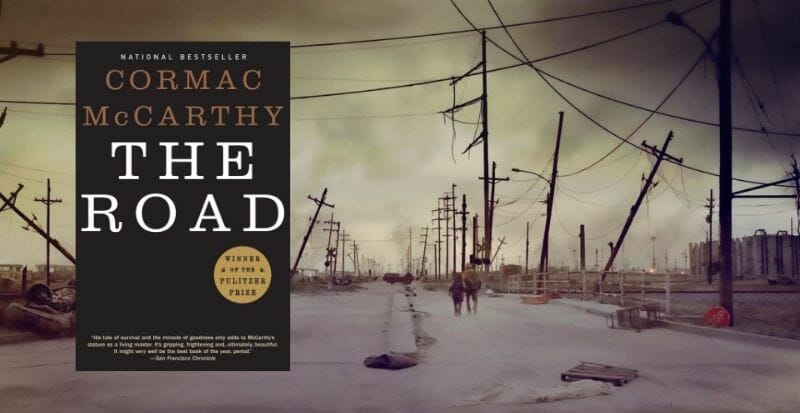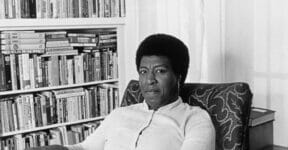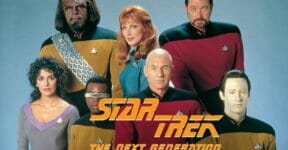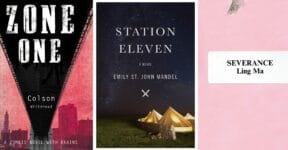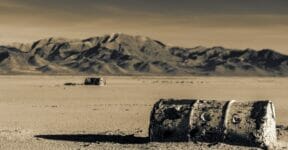Post-apocalyptic science fiction novels are nothing new. But every now and then, exceptional authors find new ways to deliver the familiar premise of the end of the world through unique angles that captivate readers of every background. Stories and details about a hypothetical collapse of human civilization in the aftermath of a global-scale environmental disaster seem to have been exhaustively explored in books and films. Cormac McCarthy begged to differ and delivered unforgettable imagery of the planet’s devitalization with The Road, published in 2006. The novel won the Pulitzer Prize for Fiction in 2007.
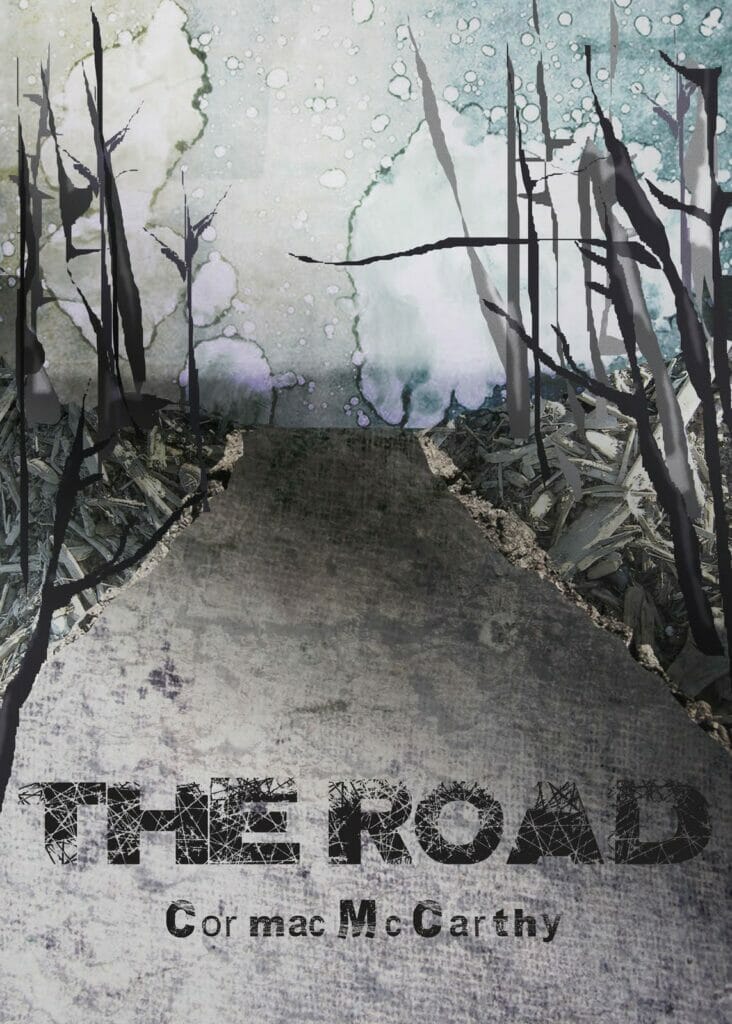
As far as the post-apocalyptic sub-genre is concerned, the main topics in The Road cannot get any bigger: a destroyed planet, the subsequent degradation of civilized society, and a father’s hope for the survival of his son. McCarthy has managed to describe so vividly the appearance of a devastated world – through the eyes of a desperate man and an innocent child – that readers almost feel like they are seeing it in pictures. The ruins and chaos are laid bare along the road to nowhere.
Much like other of McCarthy’s works, the premise and plotline should only serve as a small portion of what makes a novel great. The larger part is comprised of the prose itself. A post-apocalyptic theme always revolves around the uncomfortable idea of a bleak world and death, and the novel is flooded with just the right words for it.
Pertinent Warnings
Plenty of post-apocalyptic fiction comes with an inherent didactic function, and The Road is no exception. Within the scope of academic discourse and popular media converse, the novel is often regarded as a stark warning about the potential for an environmental catastrophe. Billions of people have died, leaving the few remaining unlucky survivors to forage through a desolate wasteland.
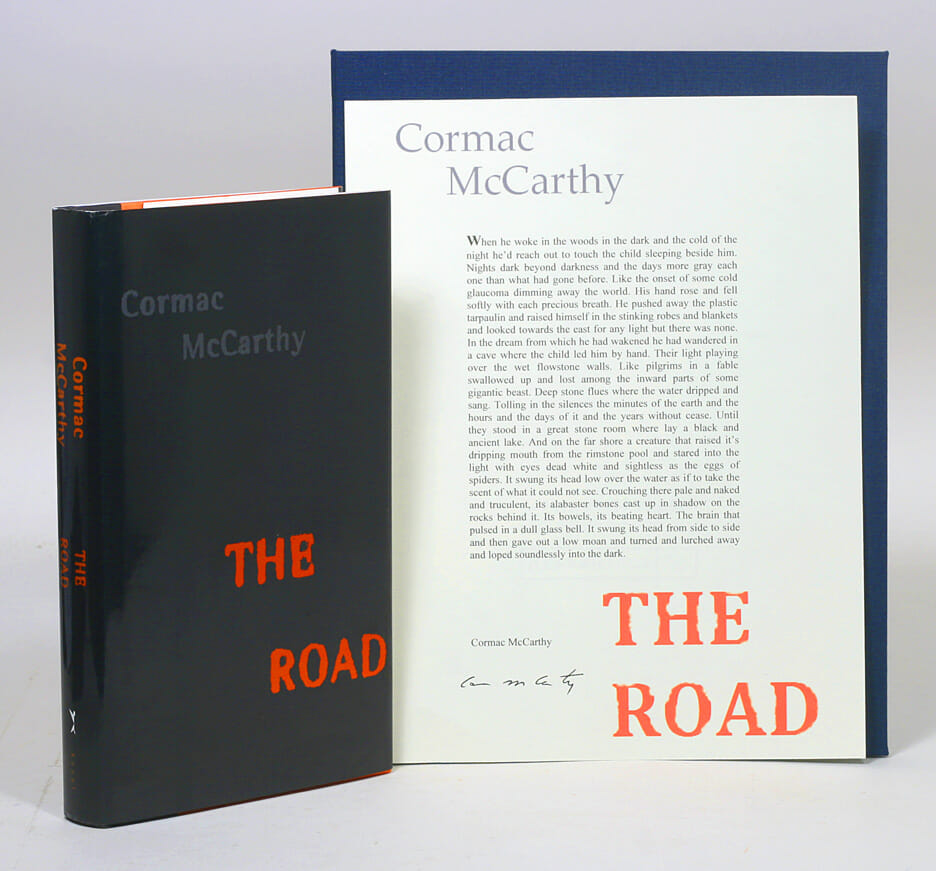
An environmental disaster of a biblical scale leads to an extreme scarcity of the essentials in life. When the planet is deprived of its life-sustaining ecology, society collapses. The biosphere has shrunk to a point where humans are the only useful resource. Moral degradation is an inevitability. The easiest way to stay alive is to end other people’s lives for food. On the brink of extinction, even the human species can no longer cling to its long-established social codes. While never explicitly mentioned in the novel, McCarthy reaffirms the idea that human civilization is impossible without a stable biosphere. It only takes a single big sweep of some environmental change to roll back technological advances and bring forth humanity’s primal aggressiveness.
Desperate Walk
A father and his son, both unnamed, are the most important survivor-scavengers in the novel. McCarthy uses the father’s voice to channel a terrifying vision of a post-apocalyptic time. The son was born just after the devastation had started. The Road never explains the nature of the catastrophe; it might be a nuclear war, climate change, or a great fire. The boy’s mother is no longer with them. She chose to commit suicide over dealing with the ordeals that might come with starvation and cannibalism.

The two are on a desperate journey to search for a warmer place. It is hard to tell the season; whatever it is, the soot is so thick that it blocks out the sun. The boy has never known a world before the apocalypse, and his father tells stories about it as best he can from what he dimly remembers. It is a good thing for the boy that his father sometimes dreams about the bygone world.
One thing is certain: the father is well aware of the possibility that they will die soon unless they get to a warmer place before the next winter. Despite all challenges, the end of ethics, and the looming disappearance of humanity in its entirety, the father is a man on a mission to instill moral values to his only boy. He will kill anyone who puts his son in danger.
The relationship between the father and his son becomes a beacon of hope that humanity will hold onto even when the notion of good and evil have all gone. Now that they live in a completely-transformed world, the small family offers a glimpse into an old normality. It is a perfect scenario where McCarthy can explore the hardship of survival in the idle of an unsightly landscape with intimate beauty and precision.
Approaching the end of The Road, the father dies. The boy stays with the corpse for three days before he is found by a man with a gun. The novel actually has quite a happy ending in which the boy is welcomed into a new family. That said, the future of the boy and humanity remains much in mystery.
We think this novel is a classic. The Road is heart wrenching, heart warming, and makes you feel as if it doesn’t really matter what happened to end society. It’s gone, and the survivors are stuck with the choice of rebuilding or ending their own lives.
Did you read The Road? Did you like it? Tell us what you think. We’d love to hear from you.
Other things you might want to know about.
What books should a newcomer to Cormac McCarthy read first?
According penguinrandomhouse.com here are the books you should start with if you have never read McCarthy’s work.
- All the Pretty Horses
- The Crossing
- Cities of the Plain
- No Country for Old Men
- Blood Meridian
- The Road
- Suttree
Go to penguinrandomhouse.com and read Jenny Jackson’s article called ‘The Cormac McCarthy Primer: Cormac’s Editor Recommends His Most Famous Essential Books.’ There are details about each of these books.
What are the worst environmental disasters?
According to history.com these are the deadly environmental disasters of our time.
- Dust Bowl
- Great Smog
- Minamata Disease
- Bhopal
- Chernobyl
- Kuwaiti Oil Fires
- BP Oil Spill
Go to history.com and read the article called ‘7 Deadly Environmental Disasters’ by Jessie Greenspan. You will learn explanations about each of these.
What are other novels about fathers and sons?
According to goodreads.com here are some examples of fiction novels about fathers and sons.
- The Road by Cormac McCarthy
- Cutting for Stone by Abraham Verghese
- Between the World and Me by Ta-Nehisi Coates
- A Different Pond by Bae Phi
- Defending Jacob by William Landay
- Hotel on the Corner of Bitter and Sweet by Jamie Ford
- Us by David Nicholls
- Knock Knock by Daniel Beaty
- Marcelo in the Real World by Francisco X Stork
- The King of Lies by John Hart
Go to goodreads.com to read more about each of these novels.

